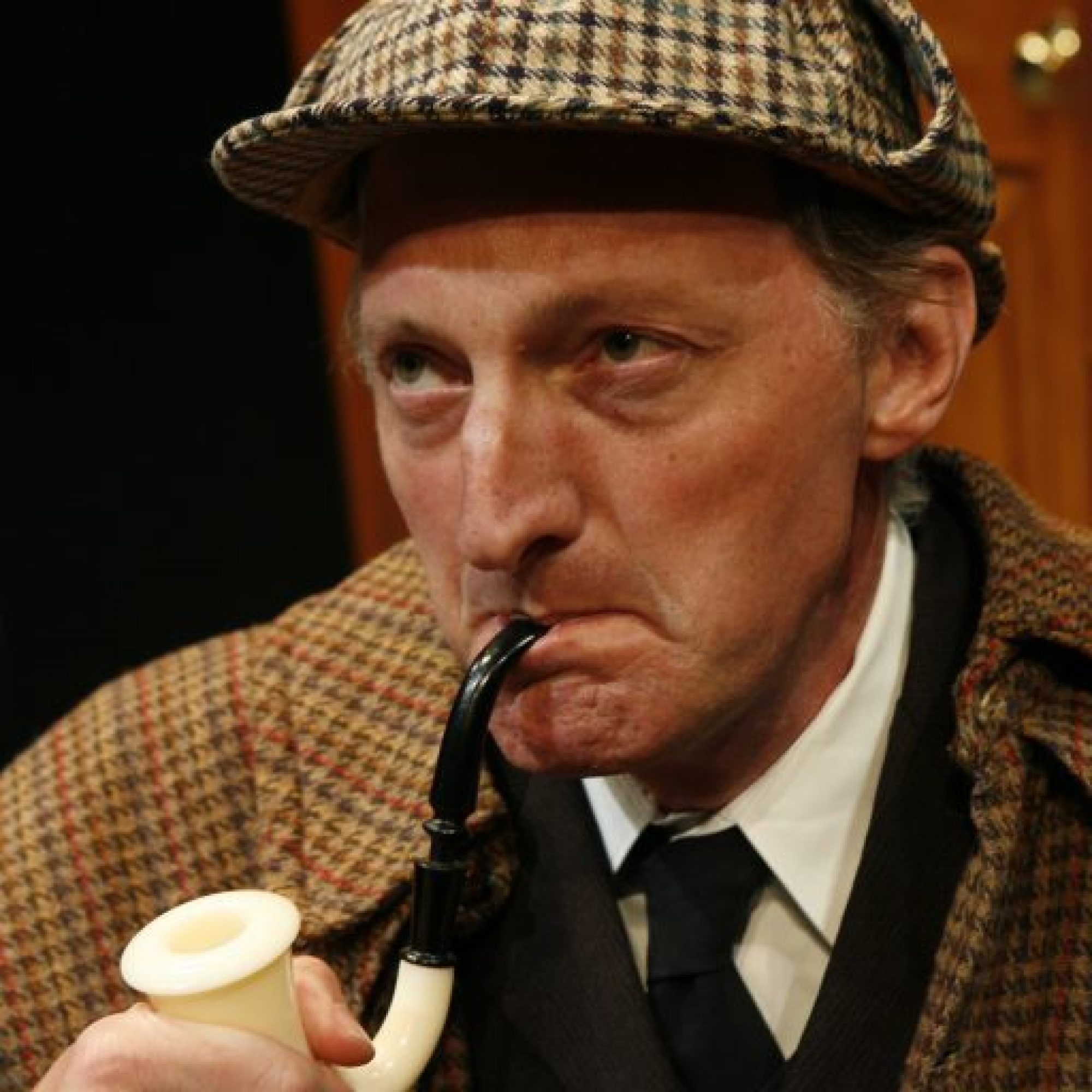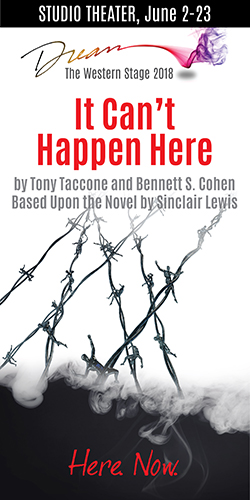
“It Can’t Happen Here???
By Tony Taccone and Bennett S. Cohen,
Based Upon the Novel by Sinclair Lewis
STUDIO THEATRE, June 2, 3, 8, 9, 10, 15, 16, 22, 23
More relevant than ever before
Synopsis:
Lewis’ tale keeps insinuating itself into our lives because of its insight into American politics. It tells of the ascent of a demagogue who becomes President of the United States by promising to return the country to greatness. Sound familiar? A frightening reminder of just how fragile democracies really are.
I will be playing the central character, Doremus Jessup, a newspaper editor caught in the midst of a Fascist take-over. With the help of his close friends and family, Doremus struggles to surmount the crises of a divided country and to take part in a determined Resistance against the destruction of democracy. I find the story disturbingly prescient, moving and challenging and hope that you will, too.
———- Forwarded message ———-
From: Susan D Keenan
Date: Thu, May 31, 2018 at 11:53 PM
Subject: It Can’t happen here…
To: Jeffrey Heyer
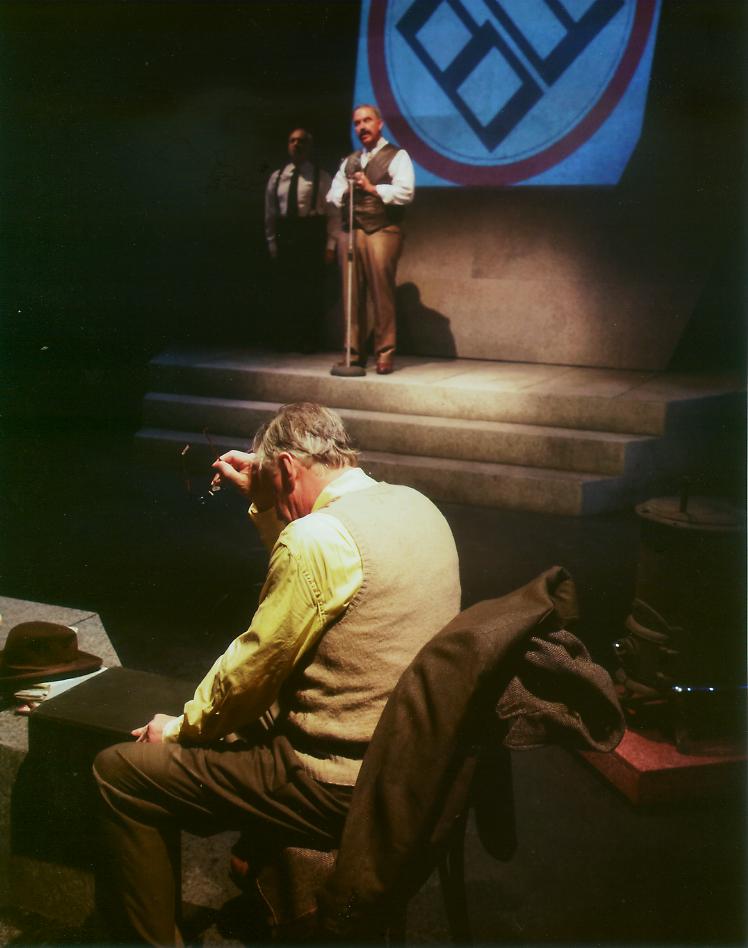
Doremus (JTHeyer) hears Pres. Windrip (David Norum) declare martial law on the radio. “It Can’t Happen Here??? TWS 2018. Photo by Richard Green.
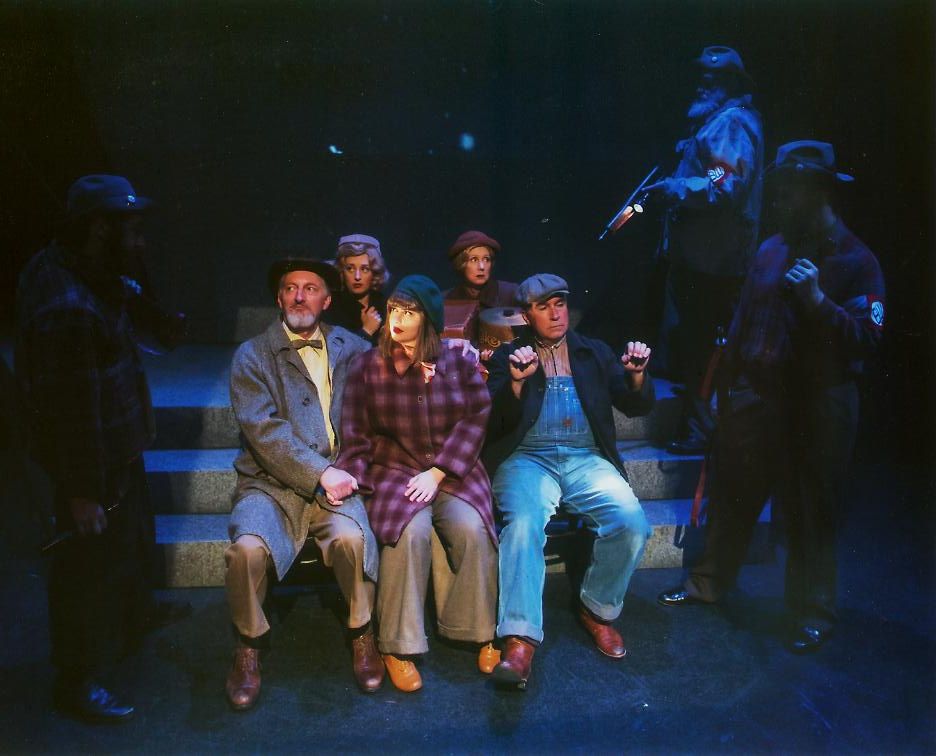
Doremus (JTHeyer), Sissy (Hanne Tonder), Buck Titus (David Norum), Mary (Sara Mardon) and Emma (Katherine Adrian) stopped at the Canadian border by Minute Men (Gabriel Alvizo), (Cliff Gilkey) and (Chris Tabachi). “It Can’t Happen Here??? TWS 2018. Photo by Richard Green.
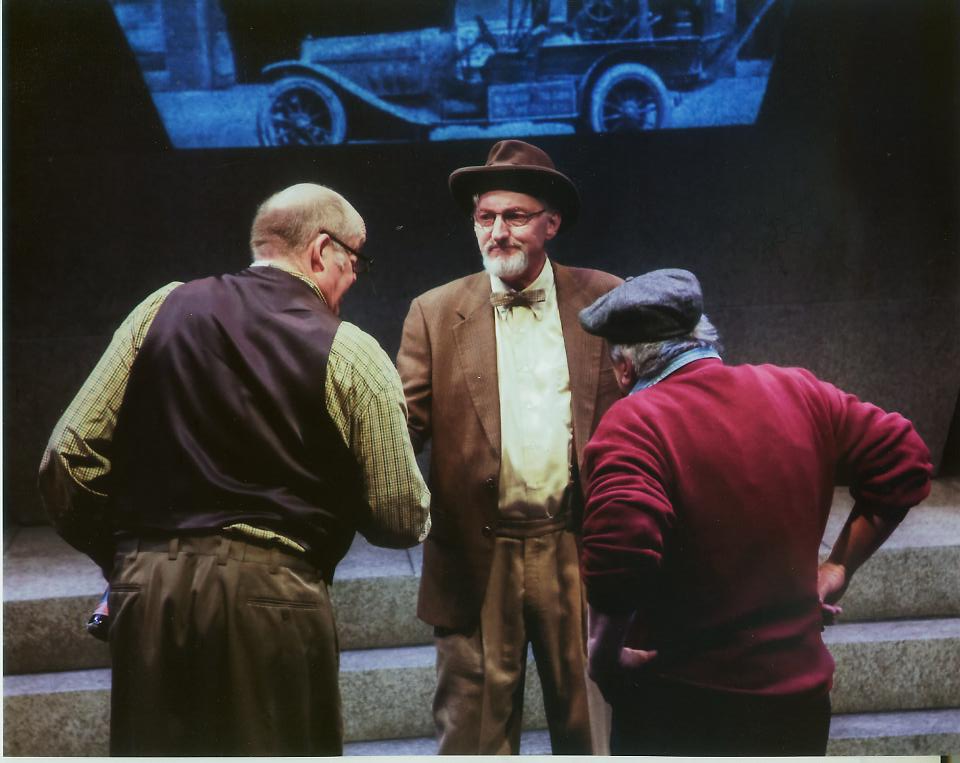
Doremus (JTHeyer) seeks Resistance from Communist Pascal (Cliff Gilkey) and Democratic Socialist Pollikop
(Ron Cacas). “It Can’t Happen Here??? TWS 2018. Photo by Richard Green.
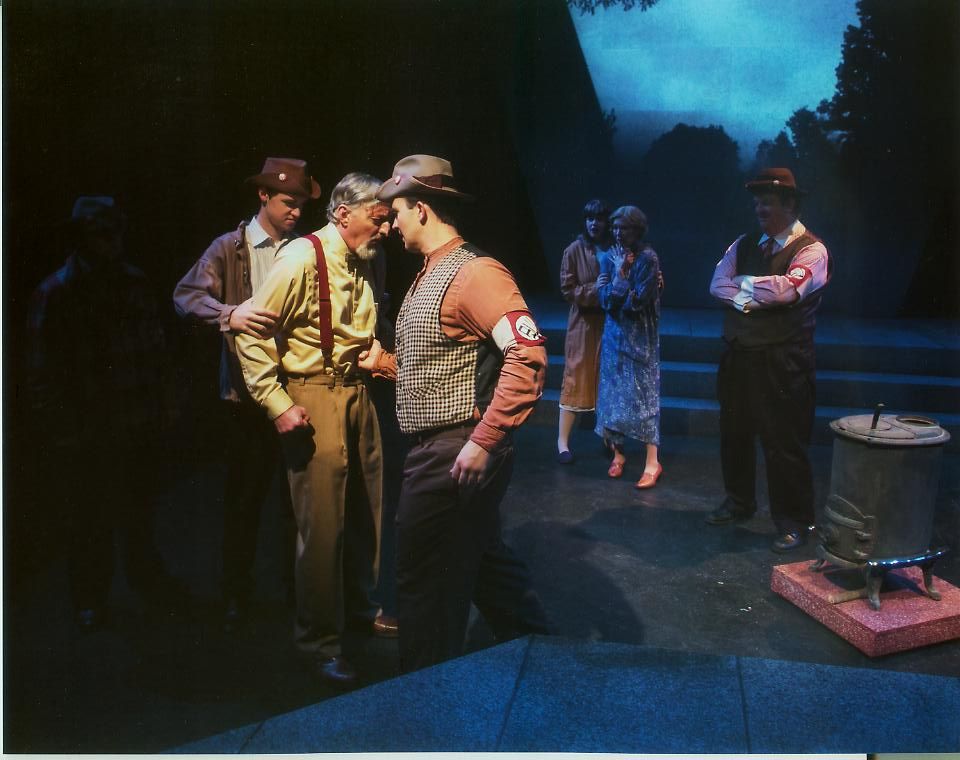
Minute Man (J. T. Taylor) holds Doremus (JTHeyer), punched by Minute Man (Chris Tabachi), while watched by Sissy (Hanne Tonder), Emma (Katherine Adrian) and Shad (Scott Free). “It Can’t Happen Here??? TWS 2018. Photo by Richard Green.

Film segment: Doremus (JTHeyer) stripped and processed into concentration camp. “It Can’t Happen Here??? TWS 2018. Photo by Richard Green.
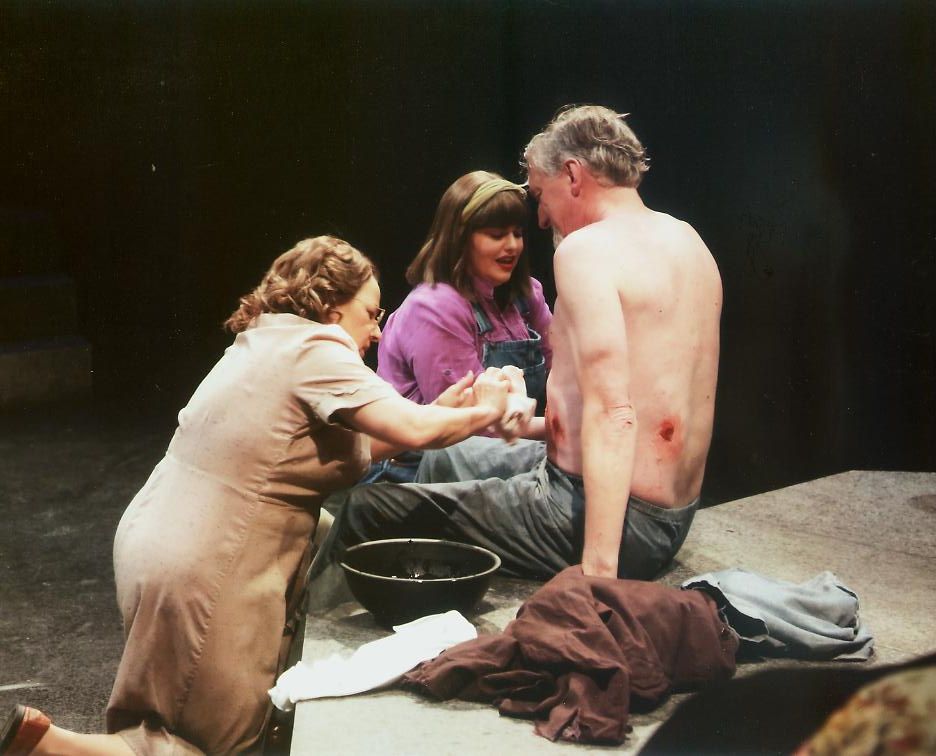
Lorinda (Jill Jackson) and Sissy (Hanne Tonder) clean the wounds of escaped Doremus (JTHeyer). “It Can’t Happen Here??? TWS 2018. Photo by Richard Green.
Performing Arts Monterey Bay
It Can’t Happen Here
Posted on June 4, 2018

By Philip Pearce
WITH POLITICAL PROPHETS as seasoned as Madeleine Albright wondering if we’re
headed for the age of U.S. Fascism, Western Stage’s It Can’t Happen Here earns
top marks for relevance. It’s the stage adaptation of what till recently was
a long forgotten novel by Sinclair Lewis. Its satiric account of how a populist
demagogue rants and raves his way into the White House has rocketed the book
back onto best seller lists more than 80 years after its original depression
era publication date.
The parallels with contemporary America are stunning. Lewis depicts a nation
so socially confused and polarized that a blowhard senator named Buzz Windrip,
whose big Fascist logo hits you head-on as you enter the Studio Theatre, manipulates
a political base dominated by an under-employed proletariat resentful at having
no voice in a Washington dominated by a spineless Congress and a coterie of
Liberal pre-beltway eggheads.
As with Trump, leaders of organized religion figure heavily in Windrip’s climb
to power. Here it’s not so much troubled Protestant Evangelical support as the
bizarre imprimatur Windrip gains from a sinister Catholic bishop named Prang
(Fred Herro), modeled on Father Charles Coughlin, who used his popular weekly
radio show to preach banking reform and racial hatred back in the 1930s.
The adaptation, first commissioned by Berkeley Repertory Theatre, lays out
the contemporary political parallels with a dark wit that effectively echoes
Lewis’s ironic approach to the faults and flaws he saw in twentieth century
America. \
I like the way adapters Tony Taccone and Bennett S Cohen succinctly summarize
the character of the novel’s wise New England hero Doremus Jessup in terms of
what he reads. Cast members, who narrate as well as enact events in the story,
take up and name, volume by volume, the wildly varied reading matter Jessup
has chosen to pile, helter-skelter, around his cluttered study.
There’s a nice comic strip approach to the succession of political meetings,
with cast members holding up signs that signal us audience members to join in
“Applause,” “Cheers” or “Boos,” like fans at an explosive television talk show.
Objective truth gives way to whatever the new idolized party leader says is
the New Truth.
It’s an able and hard-working cast. Jeffrey T Heyer is an admirable Doremus,
slyly funny, at first too amiably wedded to his work as a local newspaper columnist
to succumb easily to pressures to pull him into more than readable editorial
tirades against the new political upstart in Washington. Once committed to action,
Heyer delivers a lot of pretty complicated rhetoric with impressive clarity.
As his loving but conventional wife Emma, Katherine Adrian offers a rounded
portrait of a nice woman caught up in events she’s too shallow to cope with.
Jill Jackson is typically incisive and convincing as Lorinda Pike, a local widow
who has the insight, intelligence and drive to become one of Doremus’s few political
soul mates. The other is the bright and appealing Hanne Tonder, who grows from
a predictable teen-aged daughter to a formidable ally in the anti-Windrip campaign.
The cast are called to play multiple roles and to become voices in a chorus
that guides us through the complicated turns of a politically loaded evening.
David Norum’s performance as Windrip has such a casual foolishness that it’s
hard to credit the enthusiasm he sparks in his supporters-but that may be just
the point he and director Jeff McGrath want to make. Fred Herro does a series
of snakes like Bishop Prang and Windrip’s nasty military hit-man Effingham Swan
with a low-key restraint that keeps them interesting.
By intermission time, the elements of Jessup’s challenges, personal and political,
and Windrip’s ruthless rise to power have been painted in clear, broad brush
strokes and with a zip and enthusiasm that link the spectator with the ins and
outs of the plot. It’s in the headlong rush of an over-crowded second act that
things fall apart. McGrath seems aware of the problem. He choreographs the hour-long
closing action with a telling economy. And, by and large, the cast struggle
to keep pace, but the text is against them and they seem tired.
The trouble with this kind of literal stage adaptation of a full-length novel
is there’s just too much material. The plot points set up in Act 1 and needing
to be solved in Act 2 are not just individual, personal, domestic and local.
They are national, even global. Doremus’ family is torn apart by the sweep of
world events. Doremus himself becomes a key figure in the counter insurgency
against an increasingly brutal militarist dictatorship. Newspaper headlines
and pieces of new legislation explode every few minutes from different corners
of David Parker’s flexible set. Opposition forces plan details of their complicated
counter-measures. It’s too much. As an audience we are so busy processing information
there’s no longer time to become emotionally engaged. The terrible revenge Doremus’
daughter Mary (touchingly performed by Sara Mardon) takes against the murder
of her doctor husband ought to stir our terror and pity, but it just gets swept
along in the rush of things happening.
Visit this Western Stage season opener and you will see a committed cast applying
talent and teamwork to a story that would make an effective three-part mini-series
but gets crammed uncomfortably into 150 minutes of overcrowded live theater
playing time.
It continues weekends through June 23rd.
